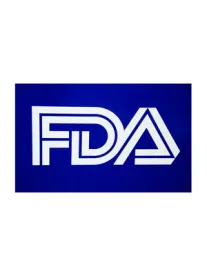The U.S. Food and Drug Administration ("FDA") today officially published the sixth of seven total final rules implementing the Food Safety Modernization Act ("FSMA"). The final rule on Sanitary Transportation of Human and Animal Food establishes criteria for the sanitary transportation of food and contributes to the FDA's objective to protect the U.S. food system from farm to table by limiting the risk of food contamination during transportation.
FSMA was signed into law on January 4, 2011, and represents the most comprehensive overhaul of the U.S. food safety regulatory scheme since the passage of the Food, Drug and Cosmetic Act in 1938. For over five years, the FDA has been developing the seven final rules that serve as the foundation of FSMA. Each final rule impacts a different fundamental area of the U.S. food system. In September and November 2015, the FDA issued the first five of the seven final rules: (1) Preventive Controls for Human Food; (2) Preventive Controls for Animal Food; (3) Foreign Supplier Verification Program; (4) Standards for Produce Safety; and (5) Accredited Third-Party Certification.
The Sanitary Transportation final rule builds on requirements set out in the 2005 Sanitary Food Transportation Act (SFTA). The Sanitary Transportation final rule applies to shippers, loaders, carriers by motor or rail vehicle, and receivers involved in transporting human and animal food for U.S. distribution. However, there are gaps in the FDA's authority to regulate different types of food transport conveyances under the 2005 SFTA; the final rule does not apply to transportation of human or animal food by barge, ship or air.
Shippers, loaders, carriers by motor or rail vehicle, and receivers impacted by this final rule must comply with new requirements addressing shipping conditions and practices, equipment temperature controls, employee training, and record keeping. The final rule does contain certain categorical exemptions, including transportation operations for human food coproducts intended for animal feed that are not further processed. Compliance dates for the final rule generally adhere to the following scheme:
Small Businesses - businesses other than motor carriers that are not also shippers and/or receivers employing fewer than 500 persons and motor carriers having less than $27.5 million in annual receipts will have to comply two years after the publication of the final rule.
Other Businesses - a business that is not small and is not otherwise excluded from coverage will have to comply one year after the publication of the final rule.
The FDA is empowered to waive the requirements of this final rule if it determines that the waiver will not result in the transportation of food under conditions that would be unsafe for human or animal health. The FDA has already announced that it intends to publish waivers for (1) shippers, carriers, and receivers who hold valid permits and are inspected under the National Conference on Interstate Milk Shipments, and (2) food establishments such as restaurants, supermarkets, and home grocer delivery operations holding valid permits issued by a regulatory authority (ex. state or tribal agency).




 />i
/>i
